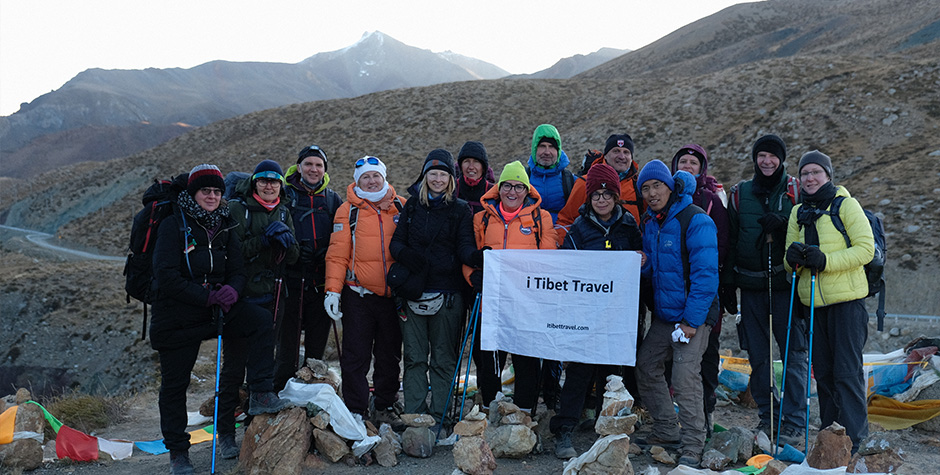The Eightfold Path is a fundamental concept in Buddhism that serves as a guide to achieving enlightenment and liberation from suffering. Rooted in the teachings of the Buddha, this path encompasses eight interconnected steps or practices that help individuals develop wisdom, ethical conduct, and mental discipline. By following the Eightfold Path, one can cultivate a more meaningful and harmonious life, leading to personal growth and spiritual awakening.
Introduction to the Eightfold Path
Buddhism, as a philosophical and spiritual tradition, provides valuable insights into the human condition and offers practical ways to alleviate suffering. The Eightfold Path forms a core aspect of Buddhist teachings, emphasizing the holistic development of individuals in their pursuit of liberation from the cycle of birth and death.
Understanding the Background of the Eightfold Path
To grasp the significance of the Eightfold Path, it is essential to explore its historical context. The path originated from the Buddha’s first sermon, known as the Dhammacakkappavattana Sutta, where he presented the Four Noble Truths. The Fourth Noble Truth introduced the Eightfold Path as a means to attain liberation from suffering and achieve Nirvana.
The First Step: Right Understanding
The first step of the Eightfold Path is Right Understanding. This step involves developing a deep comprehension of the nature of reality, the Four Noble Truths, and the workings of karma. Right Understanding serves as a foundation for the entire path, guiding practitioners to perceive the world with clarity and wisdom.
Right Understanding: The Importance of Wisdom
Wisdom plays a pivotal role in the Eightfold Path. It encompasses discernment, insight, and the ability to see things as they truly are. Right Understanding allows individuals to recognize the impermanent and interconnected nature of existence, paving the way for liberation from ignorance and delusion.
The Second Step: Right Intention
Following Right Understanding is the second step, Right Intention. This step involves cultivating wholesome intentions and aligning one’s motives with ethical principles and compassion. Right Intention encourages practitioners to renounce harmful desires and cultivate thoughts of goodwill, kindness, and non-harming.
Right Intention: Shaping our Actions
Right Intention acts as a guiding force behind our actions. By setting positive intentions, we become more aware of the consequences of our choices and strive to act with integrity and benevolence. This step helps practitioners develop a moral compass that guides them towards virtuous conduct.
The Third Step: Right Speech
Right Speech, the third step of the Eightfold Path, emphasizes the importance of mindful and skillful communication. It involves refraining from false, harmful, divisive, or frivolous speech and instead using words to promote understanding, harmony, and truth.
Right Speech: The Power of Words and Communication
Words possess immense power. Right Speech encourages individuals to consider the impact of their words on others and themselves. By practicing truthful, kind, and timely speech, practitioners create an atmosphere of trust and mutual respect, fostering harmonious relationships and reducing conflicts.
The Fourth Step: Right Action
The fourth step, Right Action, focuses on ethical conduct and encompasses abstaining from harmful actions. Right Action involves refraining from taking life, stealing, engaging in sexual misconduct, and any other actions that cause harm to oneself or others.
Right Action: Living a Morally Upright Life
Right Action emphasizes the importance of living in accordance with moral precepts. By practicing integrity, respect, and non-violence, individuals contribute to the welfare of all beings and create a supportive environment for personal and collective growth.
The Fifth Step: Right Livelihood
Right Livelihood, the fifth step of the Eightfold Path, involves choosing a livelihood that is aligned with ethical principles and contributes positively to society. It encourages individuals to engage in work that does not cause harm, exploitation, or suffering.
Right Livelihood: Aligning Work with Values
Right Livelihood challenges individuals to reflect on the impact of their profession on themselves, others, and the environment. By choosing a vocation that promotes well-being, fairness, and sustainability, practitioners can find greater fulfillment and contribute to a more just and compassionate world.
The Sixth Step: Right Effort
Right Effort, the sixth step, emphasizes the cultivation of wholesome qualities and the elimination of unwholesome ones. It encourages individuals to make a persistent and dedicated effort to develop positive mental states, such as loving-kindness, compassion, and equanimity.
Right Effort: Cultivating Positive Qualities
Right Effort is a practice of consciously directing our thoughts, words, and actions towards positive outcomes. By actively nurturing wholesome qualities and letting go of negative habits, practitioners develop inner strength and resilience, creating a fertile ground for personal growth and transformation.
The Seventh Step: Right Mindfulness
Right Mindfulness, the seventh step, involves cultivating present-moment awareness and non-judgmental observation of our thoughts, feelings, and sensations. It encourages practitioners to be fully present in each moment, developing a clear and focused mind.
Right Mindfulness: Cultivating Awareness and Presence
Right Mindfulness is about being fully engaged in the present moment, observing experiences without clinging or aversion. Through mindful awareness, individuals develop a deeper understanding of their minds, emotions, and the nature of reality, leading to greater clarity, peace, and insight.
The Eighth Step: Right Concentration
The eighth and final step of the Eightfold Path is Right Concentration. This step involves the development of focused and tranquil states of mind through meditation and mental cultivation. Right Concentration leads to deep states of absorption, clarity, and insight.
Right Concentration: Developing Focused and Tranquil States of Mind
Right Concentration is a practice of training the mind to become calm, collected, and one-pointed. By cultivating concentration, practitioners enhance their ability to perceive reality with clarity and gain profound insights into the nature of existence.
The Interconnectedness of the Eightfold Path
The Eightfold Path is not a linear progression but a set of interrelated practices. Each step supports and reinforces the others, creating a synergistic effect that facilitates holistic development. The Eightfold Path is often depicted as a wheel, symbolizing the interconnectedness of its components.
The Benefits of Practicing the Eightfold Path
Practicing the Eightfold Path brings numerous benefits to individuals. By cultivating wisdom, ethical conduct, and mental discipline, practitioners experience personal growth, inner peace, and a deeper understanding of themselves and the world around them. The path serves as a transformative journey towards liberation from suffering and the realization of one’s true nature.
Applying the Eightfold Path in Daily Life
While the Eightfold Path is profound, it is also highly practical. It can be applied in everyday life, guiding individuals in their actions, relationships, and decision-making. By integrating the principles of the path into daily routines, practitioners can experience its transformative power and bring about positive change in their lives and the lives of others.
Common Misconceptions about the Eightfold Path
The Eightfold Path can sometimes be misunderstood or misconstrued. Addressing common misconceptions is important to ensure a clear understanding of its principles and practices. By dispelling myths and clarifying doubts, individuals can approach the path with greater clarity and confidence.
Conclusion
The Eightfold Path offers a profound framework for personal transformation and spiritual growth. By embracing the path’s eight interconnected steps, individuals can cultivate wisdom, ethical conduct, and mental discipline, leading to greater fulfillment, inner peace, and liberation from suffering. Incorporating the teachings of the Eightfold Path into our lives provides a pathway to awaken to our true nature and live a life of purpose, compassion, and harmony.
FAQ
How long does it take to master the Eightfold Path?
The Eightfold Path is a lifelong journey, and the time to master it varies for each individual. It requires dedication, consistent practice, and an open mind. Progress on the path is gradual, and the benefits can be experienced at each stage of the journey.
Can one follow the Eightfold Path without being religious?
Yes, the Eightfold Path is not limited to a particular religious belief system. It is a practical and philosophical guide for leading a virtuous and fulfilling life. It can be followed by individuals from various backgrounds and spiritual orientations.
Are all the steps of the Eightfold Path equally important?
Yes, all eight steps of the Eightfold Path are interconnected and equally important. Each step contributes to the holistic development of an individual’s wisdom, ethical conduct, and mental discipline. Neglecting any step can hinder progress on the path.
Is it necessary to follow the steps of the Eightfold Path in order?
While the Eightfold Path is often presented in a sequential manner, it is not strictly necessary to follow the steps in order. Each step supports and enhances the others, and practitioners may find themselves simultaneously working on multiple aspects of the path.
How can I find a community to support my journey on the Eightfold Path?
Finding a community of like-minded individuals can provide valuable support and guidance on the Eightfold Path. You can explore local Buddhist centers, meditation groups, or online communities to connect with fellow practitioners and learn from experienced teachers.
About Tibet Travel & Tours
Tibet Travel & Tours is a local travel agency in Tibet that offers unique and authentic experiences to travelers from all around the world. As a leading tour operator in Tibet, we provide high-quality Tibet Travel services that are tailored to our clients’ needs and preferences.
Our team of experienced and knowledgeable professionals strives to ensure that our clients have a hassle-free and memorable trip in Tibet. We specialize in various types of tours, including cultural tours, trekking and hiking tours, and adventure tours.
Our commitment to providing exceptional service has earned us a reputation as one of the best local travel agencies in Tibet. Contact us today to plan your unforgettable trip to Tibet.
Explore Tibet with a local Tibetan Travel Agency
If you’re looking to explore Tibet, starting your journey with a reputable Tibetan travel agency in Tibet is crucial. Tibet Travel & Tours is a great choice to begin your adventure with their extensive knowledge of the region and commitment to responsible tourism.
Their Tibet tour packages cater to a range of interests and budgets, making it easy to plan a trip that suits your needs. Before embarking on your tibet tour, it’s essential to have the right Tibet travel information and necessary documents, including a Tibet travel permit.
The Tibet Travel Planner provided by i-Tibet travel is an excellent resource to plan your trip, including tips on what to pack, where to stay, and what to see.
For beginners, the “About Tibet” guide provided by i-Tibet travel offers a comprehensive overview of the region’s history, culture, and top attractions. So, start your Tibet travel plan here with i-Tibet travel and discover the magic of Tibet for yourself.










